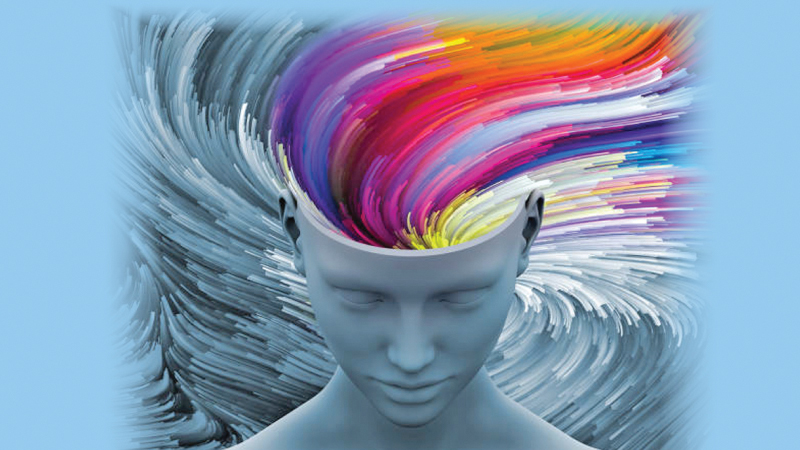Independence matters to everyone, everywhere, and anytime. It matters to us here and now, that was why Independence was celebrated everywhere in the country during the first week of February.
 The Theological College at Pilimathalawa held one of the most interesting celebrations of Independence on February 4, 2025. When the President and other dignitaries were busy in Colombo showing off the state’s power, albeit in a muffled manner, at this beautiful campus of an ecumenical seminary, we were reflecting on what our country to be in twenty-five years.
The Theological College at Pilimathalawa held one of the most interesting celebrations of Independence on February 4, 2025. When the President and other dignitaries were busy in Colombo showing off the state’s power, albeit in a muffled manner, at this beautiful campus of an ecumenical seminary, we were reflecting on what our country to be in twenty-five years.
Several panels addressed the issue from different points of view. I was invited to be a panellist representing the Sinhala cultural and literary scene. Dr. Shanthikumar Hettiarachchi, a theologian, with postgraduate training from several international universities was the moderator of my panel. They did not want me to address the question/s in theological or religious points of view. In fact, I have no expertise in those subjects.
I began by appreciating what I had seen until then. Primarily, I was delighted to see all Catholic Fathers and other Christian clergy there spoke Sinhala and English or Tamil and English. Some of them, ethnic Tamils persons, spoke all three languages with nearly equal eloquence. To begin with then, I said, ‘I like to see a significant number of Sri Lanka’s population to be bilingual or trilingual by 2051’. And I thanked those Catholic fathers, mothers, brothers and sisters for being so inspirational about acquiring language skills. Not just language skills, they were all attractive public speakers. I knew that fact even before I went there. I wanted, however, to emphasize it as a civic virtue possessed by many of our future citizens – importantly by Bhikkhus.
Then came the serious questions. I do not have space to write about all the questions and answers. Let’s look at some.
Will we have enough food in 2051?
That question had several implications. One of them was the issue of food. It was raised in a context where the price of rice had not been properly fixed. These were open questions, and I was free to address them anyway I wanted.
For me, total independence is not something viable or desirable in an increasingly integrating world. We must make attempts to avoid direct colonialism, and I am happy that we received Independence in 1948. Being subjugated to or subservient to anyone is not a dignified life for anyone. But still, we need a world where our interdependence is properly valued, and those are more responsible and able contribute more to human flourishing everywhere in the world. It is a bit too idealist in the context of contemporary geopolitics. After all, Donald Trump, the world’s most powerful President, has already decided to ignore some key responsibilities as the leader of a superpower. Yet, to come back to the issue of food security, all of us must find the right balance between liberation and interdependence.
Lester Brown, an environmentalist, argued in his ‘Who will feed China: wake-up call for a Small Planet’ (1995) that, when China’s middle class grows along with the country’s phenomenal economic growth, there will be an exponential demand for food. China has the largest population. At least a portion of it will increase food consumption, and it will create a huge demand in the world food supply. That demand will be large enough to drive food prices up in the entire world. And millions of poor people will not be able to afford to buy food at those prices.
The increased consumption of affluent countries can mean that there is no food at all for many people in poor countries. Thus was Brown’s argument in 1995. Many of his predictions have been proven to be true. As scientist Jared Diamond has shown in ‘Collapse: How Societies Choose to fail or survive’ (2005) China itself is paying for its own growth and environmental disasters in that country are endless.
Luckily, China has been spending a considerable amount of money to address those issues. I read both books as metaphors about any country with global superpower ambitions. Countries such as US, China or India aggressively seek power beyond their national borders. Unfortunately, those very international ambitions make them mostly focused on their national interests.
Thus, a lot depends on how the next superpowers such as China and India understand their global responsibilities in a shared world. Let’s hope they will realize that maintaining luxurious lifestyles in a superpower with an extremely large population can create and sustain extreme poverty in other places in the world. That was why I argued for both independence and interdependence.
On the cultural front we need citizens who are not threatened by cultural differences. By 2051, I like most of our people to acquire some of the key attributes required to live rewarding lives in a globalized world. I like many of our people to be cosmopolitans- citizens of the world. Cosmopolitans are at home in the presence of cultural differences. They speak more than one language.
Such cosmopolitans are exposed to people from diverse cultural backgrounds. Best of the cosmopolitans are ‘rooted cosmopolitans’ who have a deep understanding of their home cultures but are open to all desirable things in the world. Those were the qualities Gurudeva Ravindranath Tagore sought to develop in modern Indian citizens through his education and literature. I like to see such citizens in Sri Lanka in 2051. The discussion went on. I will return some other salient features of it in another essay.









